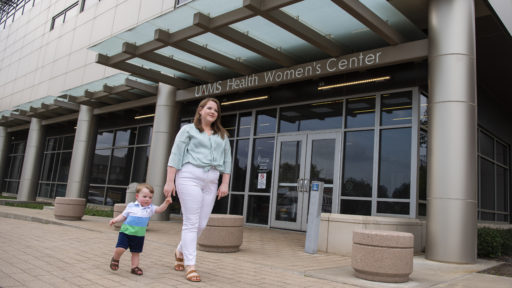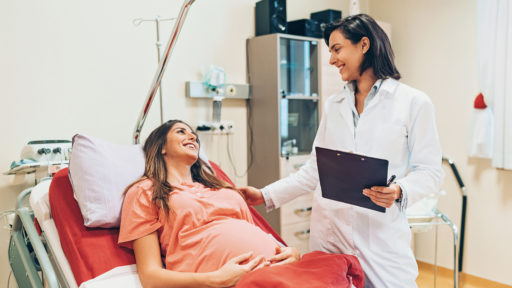Trust your baby to the only center in Arkansas that provides comprehensive, evidence-based prenatal diagnosis and genetic testing services. UAMS Health offers a complete range of services, from genetic counseling and testing to high-risk pregnancy management, and fetal interventions. Our team is made up of board-certified maternal-fetal medicine physicians, board-certified genetic counselors, specially-trained advanced practice nurses, and registered diagnostic medical ultrasonographers.
As part of UAMS Health, our center provides easy access to a variety of renowned specialists that are here to guide you through the worries of high-risk pregnancies. In addition, we have strong relationships with the pediatric sub-specialists at Arkansas Children’s Hospital and our own level 3 neonatal intensive care unit (NICU), who also works closely with our mothers and families, preparing for the deliveries and care of babies with significant medical complications or birth defects.
We provide these services at a variety of locations throughout the state of Arkansas via our telemedicine network. If you live in a location that is far from our main center in Little Rock, you may have the option of receiving our services at a closer location. This may allow you to bring family members to the appointment for support as well as save yourself the hassle of long-distance travel.
A family doctor, obstetrician, or another healthcare provider may offer you an opportunity to visit with us. Two of the most valuable services that we provide are tests for physical and genetic defects that could affect an unborn baby. Nearly 97% of babies are born without major birth defects. However, when such defects do occur, being aware of them before delivery can improve the outcomes for babies. A non-invasive blood test can help assess your risk of having a baby with a certain birth defect, and a diagnostic test (targeted or level 2 ultrasound, amniocentesis, chorionic villus sampling [CVS]) can help determine whether the baby has a birth defect or not.
We are trained to answer questions, offer much-needed support and counseling, and provide options for the most advanced types of prenatal care and treatment. Please take a moment to look at our providers.
Who Needs Screening and Diagnosis?
Some of the most common reasons for undergoing screening or diagnosis include:
- Age — If you are 35 or older, your baby is at increased risk for certain birth defects and chromosome problems.
- An Unusual Arrangement of Chromosomes — If either parent has an unusual arrangement of his or her chromosomes, the baby may be at risk for certain birth defects. Such unusual arrangements can run in families and also cause recurrent miscarriages.
- Genes — If either parent has been diagnosed with a genetic disease (such as cystic fibrosis, sickle cell disease, hemophilia, Marfan syndrome or other birth defects) or are known carriers of such conditions, screening and diagnosis is recommended.
- Another Child With a Birth Defect — If you’ve ever given birth to a child with a certain birth defect (Down Syndrome, a congenital heart defect, cleft lip, spina bifida or other birth defects) your unborn baby may be at risk as well.
- Use of Certain Medications — Some medications used during pregnancy, especially in the first trimester, could have an effect on your baby’s development.
- Maternal Illnesses — Insulin-dependent diabetic mothers, women with lupus or other autoimmune disorders, and women with congenital heart defects should take special care while they are pregnant, and screening and diagnosis for birth defects may be recommended.




